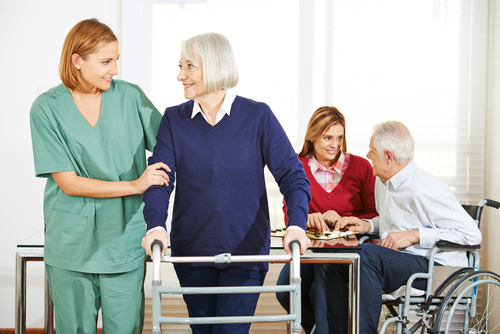
Crisis doesn’t create problems out of thin air, it accelerates issues that already exist. We’ve seen that in so many areas of society. People already prone to hatred or violence use current events as an excuse to be their worst selves. Individuals with few resources suffer most from economic challenge. People with pre-existing health conditions are less able to cope with health threats. And unfortunately, residents of short-staffed or poorly run nursing homes are at greater risk of nursing home abuse.
Covid-19 had a major impact on long-term care facilities like nursing homes. Coronavirus swept through some facilities and killed the most vulnerable, and as a result, facilities closed their doors to the public. The people inside had less interaction with loved ones, and reports of elder abuse began to trickle out in unsettling numbers.
Types of Elder Abuse Reported During the Pandemic
Elder abuse can be mental, physical, emotional, financial, involving neglect, or a combination of those things. During the pandemic, abusers used the threat of coronavirus and the resulting isolation to take advantage of people sheltering in place or living at a long-term care facility.
The National Center on Elder Abuse says isolation is one of the biggest risk factors for elder abuse, and COVID brought that to the aging population in spades. Reports include the following:
- Financial scams
- Physical abuse
- Emotional or psychological abuse
- Sexual abuse
- Neglect
Older Americans already face more fragile health, a greater risk of depression and anxiety and an increased dependency on outside sources for daily living activities. They might have to rely on family members, caregivers, friends and financial advisors to get their physical, financial and emotional needs met.
If abuse occurs, isolation makes it harder for them to get help. Abusers use fear to encourage them to stay silent.
Signs of Nursing Home Abuse During Coronavirus
The Associated Press quotes a nursing home expert who analyzed data from more than 15,000 long-term care facilities across the United States. They estimate for every two nursing home residents who died of COVID-19, another died of other causes that could have been prevented. That puts the death rate 15 percent higher than is typical at nursing homes. Protect your loved ones by keeping in frequent contact and watching for these signs.
- Neglect – Watch for weight loss, bedsores, unexpected infections, medication errors or signs your loved one is being kept in unsanitary conditions.
- Financial exploitation – Missing money or possessions, changes in power of attorney or changes to your loved one’s will, opening new accounts or credit cards unexpectedly.
- Physical – Be on the lookout for bruising, bleeding, cuts, burns and hair loss. If they suddenly lose weight or you notice the smell of urine or feces, that also could signal physical abuse.
- Mental or emotional – Your loved one might be experiencing psychological abuse if he or she becomes suddenly withdrawn, depressed, unresponsive, prone to fits of anger or crying or fearful.
When to Seek Legal Help
If your loved one died in a nursing home and you feel like elder abuse was a contributing factor, we can help you investigate what went wrong. Or, if you see signs of elder abuse and you want legal representation to protect your relative, we want to help. Contact us online to schedule a free consultation.

